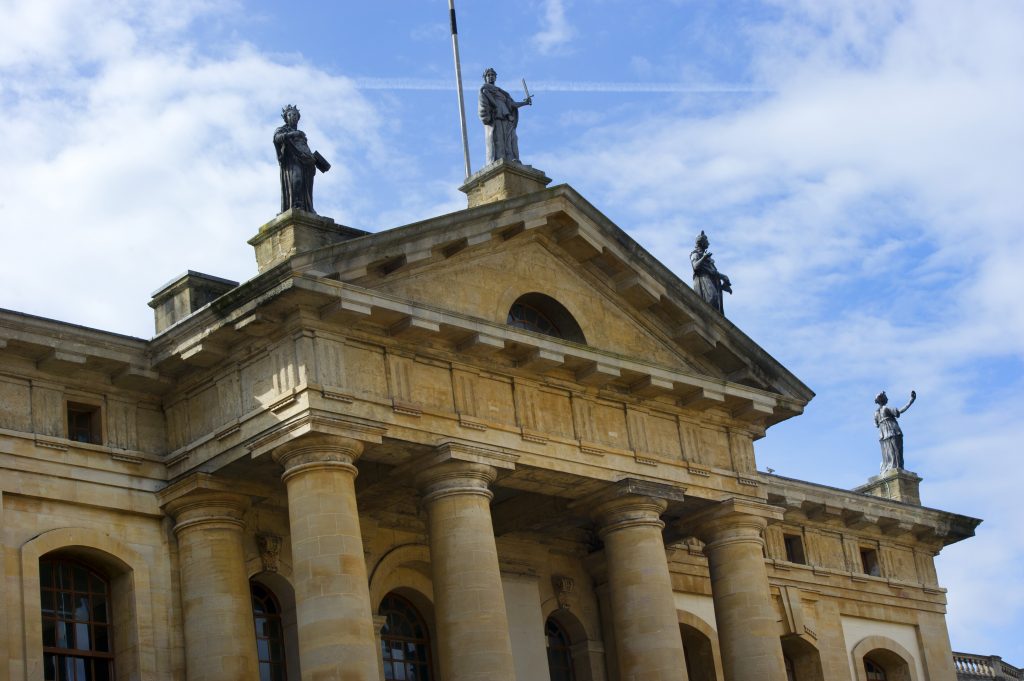
23 March 2020
Dear alumni,
Greetings from a very quiet Oxford. I’m sitting in my office in the Clarendon Building looking out at the beautiful Bodleian quad entirely empty of students and visitors. In the absence of the usual bustle, the University remains open.
I wanted to write to you as members of the alumni community to update you on how Oxford is adapting to the coronavirus pandemic.
We had eight confirmed cases in the student body when we broke for the Easter holidays. The timing of the break was fortuitous in that it has given us time to develop plans for moving all our teaching and assessment online for Trinity term.
We mobilised Bronze and Silver emergency management teams many weeks ago to help us anticipate the implications for a uniquely complex institution. Our international staff and student body belong to 39 colleges and 6 PPHs and many were conducting research, field-work and language training all over the world.
The collegiate University have come together as one to ensure that our students are cared for, our research protected, and our staff supported. Most of our students have returned home while those that remain are supported here. Most of our staff are now working remotely.
While things are quiet on the surface, we have been very busy. The Bodleian has responded to the crisis by launching a campaign to ‘Keep Oxford Reading’. When students left at the end of Hilary term they took 35,000 books with them. On 17 March, the day the library closed, a further 5,000 books were borrowed. The Bodleian is making available a vast array of digital reading material and working with other libraries and academic presses to make e-Book catalogues openly accessible. Finally, the library is also providing an eReference and eEnquiry LiveChat.
Across the divisions our academics have been contributing to the national effort to combat the pandemic; from expert modellers in the Department of Statistics, to engineers developing medical apps and, of course, our medics supporting the NHS and working on developing a vaccine. Please take a look at this microsite which provides information on some of the extraordinary research that is being done in Oxford. One cannot read this material without feeling enormous admiration for the talent of our colleagues and pride in the work they are doing to save lives, both at home and abroad.
As I write, UKRI is announcing government funding for six coronavirus related research projects. Three of these are in Oxford: Professor Sarah Gilbert’s team working on developing a vaccine; Professor Peter Horby’s team testing new and existing drugs on patients with confirmed coronavirus, and Dr Sandy Douglas’s team developing manufacturing processes for mass production of vaccines.
We have not forgotten our local community in the midst of this crisis. The Oxford Hub has launched a campaign, ‘Oxford Together’, to mobilise volunteers across the city. They have divided the city into 600 streets with ‘neighbourhood captains’ arranging assistance for vulnerable members of our community.
This crisis has posed some very real challenges to the University and it will continue to do so as we enter the very difficult times to come. Nevertheless, I am convinced that we will learn a great deal from this experience and will emerge stronger for it. The enduring value of our core mission – conducting cutting edge research, educating the next generation of responsible citizens, and contributing to the society around us – has never been more evident.
I would like to thank you, our alumni, for your ongoing support of our efforts. You are our best advocates and ambassadors, and are key members of the University community.
Sending my best wishes to you and your families.
Professor Louise Richardson
Vice-Chancellor
